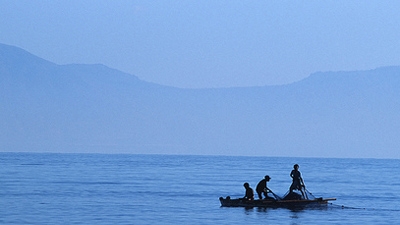For many low-income countries, natural capital is a critical asset, making up nearly 36 percent of their total wealth. The poorest communities depend on oceans, forests, and soil productivity for their daily existence, and as they grow, the pressure on land and water is increasing, threatening ecosystems and livelihoods in countries with few resources to cope with the loss.
Protecting these vital resources requires reliable data and measurement systems that can ensure they are taken into consideration during development decision making.
The latest edition of the World Bank’s Little Green Data Book, released on May 17, provides part of that equation with comprehensive data on more than 200 countries’ natural capital, including agricultural land, forests, protected areas, and water resources — information that can help policymakers, communities and other stakeholders weigh the value of natural resources and their role in development.
That information—paired with a natural capital accounting system of measuring national wealth—allows the value of such assets, as well as the costs and benefits of developing them over time, to be measured and factored into assessments of a country’s wealth and growth prospects.
Accurate data on countries’ natural capital can help governments and communities anticipate the broader impacts of competing development options, gauge the sustainability of various practices and activities, make provisions for likely losses and seek trade-offs that optimize their resources.
“Natural capital accounting lets us see who benefits from and who bears the cost of ecosystem changes, and helps to develop resource-management approaches that support the poorest communities while promoting more sustainable growth,” said World Bank Environment Director Mary Barton-Dock.
Among other sustainability measures, the Little Green Data Book 2012 includes an Adjusted Net Savings indicator—also known as “genuine savings”—which calculates the true rate of savings in an economy after taking into account investments in human capital, depletion of natural resources and damage caused by pollution. It also includes an Adjusted Net National Income indicator, which provides a broader measure of national income that accounts for the depletion of energy, mineral and forest resources.
This year, a new set of indicators on marine wealth is introduced, highlighting the role of oceans in economic development and the dramatic decline of oceans’ health. It highlights that 85 percent of the world’s ocean fisheries are fully exploited, over-exploited or depleted; excess nitrogen runoff from fertilizers has resulted in large “dead zones” in the ocean, covering some 250,000 square kilometers; an estimated 35 percent of global mangrove have been lost or converted; approximately 20 percent of the planet’s coral reefs have been destroyed in the last few decades, with a further 20 percent being degraded; and 30 percent of sea grass beds have been destroyed.
The Bank estimates that global fisheries wealth, if better managed, could increase from $120 billion to $900 billion, with the potential for the greatest gains in Asia. Marine fisheries are particularly important for Small Island Developing States and many coastal communities both in the developing and developed worlds.
“Such potential gains and losses from different development options should be made explicit when world leaders, government representatives, civil society, the private sector, and other stakeholders come together at Rio+20 to draw up a roadmap for greening global economic growth,” said Mary Barton-Dock.
Through the Little Green Data Book and the Wealth Accounting and Valuation of Ecosystem Services (WAVES) partnership, the World Bank is contributing to countries’ efforts to incorporate their natural capital into national accounts to inform priority-setting and decision-making.
Information in the Little Green Data Book and other related data are freely available online at data.worldbank.org as part of the World Bank’s Open Data Initiative.

